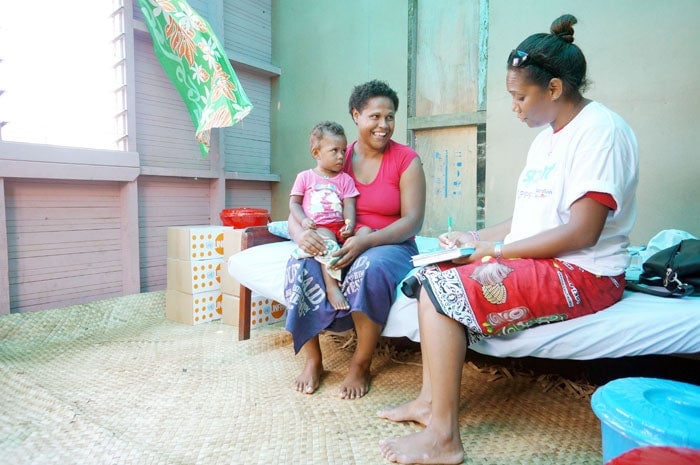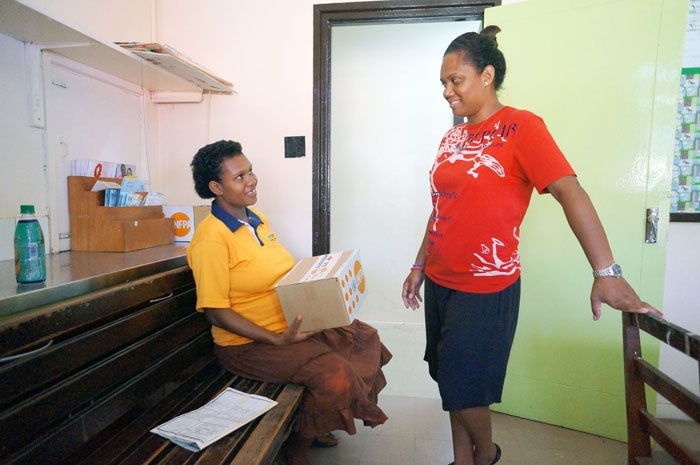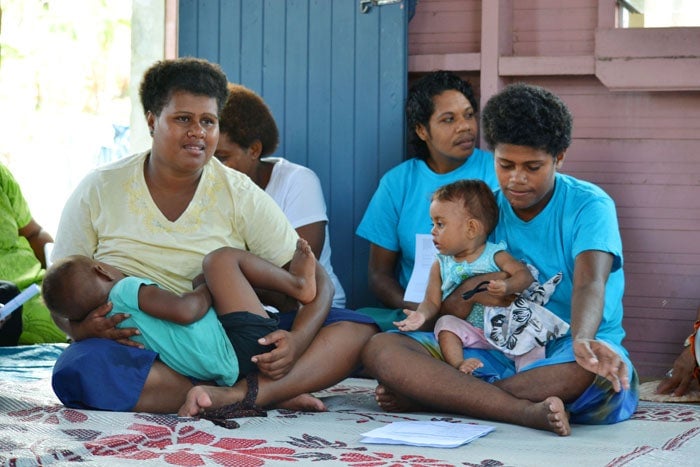Today, more than 100 million people are in need of humanitarian assistance, the highest number recorded since the end of World War II; natural disasters now affect around 200 million people per year.
A quarter of this 100 million estimate are women and girls between 15 to 46 years old (reproductive age), whose very survival require specificity of approach; pregnancies and childbirths adding to their vulnerabilities.

About three-fifths of all maternal deaths take place in emergencies and fragile situations. In such circumstances, 507 women and adolescents die from pregnancy and childbirth complications daily.
In fragile situations including the aftermath of natural disasters, women and girls are at heightened risk of contracting sexually-transmitted infections, including HIV; unintended or unwanted pregnancies; maternal death and illness; and sexual and gender-based violence.
Whether women live or die in such settings often depends on whether they can get basic sexual and reproductive health services or not, although global realities on the ground have repeatedly proven that these services are not considered urgent or life-saving.
In this fragile setting, woman and girls pay a disproportionate price although they are often the first responders in communities and drivers of recovery, always placing interests of their families before theirs.
Many factors determine the vulnerability of countries like poverty levels or geography and/or poorly-constructed informal settlements. For women, these are compounded by entrenched discrimination and gender inequality.
Globally and generally-speaking, women and girls' already have less of almost everything - income, health services, education, land, social networks, a political voice, etc. When a disaster occurs, they are more likely to be less prepared and a lot more disadvantaged. For example, in countries where female-headed households are not recognized, they may not be able to access food rations.
For the United Nations Population Fund, UNFPA, the organizational response post-disaster are ultimately about preventing maternal and infant mortality; the reduction of HIV transmission; and the prevention and management of the consequences of sexual violence.
UNFPA supports and complements response and recovery efforts of host governments specifically prioritizing emergency obstetric and newborn care, referral system for obstetric emergencies, supplies for clean and safe deliveries, contraception, condoms, antiretroviral and clinical care for survivors of rape.
The demand for humanitarian assistance has been steadily growing since 2011 but the funding to support such actions has not increased at the same pace. This should ring alarm bells for us considering the risks posed by the climate change phenomenon on our region.
Pacific island countries can expect more natural disasters and a fundamental shift is critical, from merely responding to natural disasters to actual prevention, preparedness and empowerment of people to withstand and recover from them.

As an organization which is involved in both humanitarian response and in development programming, UNFPA is working towards bridging the humanitarian-development divide with humanitarian responses that include activities which lay the foundation for long-term development.
The holistic approach of the UNFPA response therefore encompasses the creation of an enabling environment for full realization of sexual and reproductive health and rights; the fostering of individuals' resilience through education and health; addressing the issue of gender inequality; building capacities of institutions before disaster strikes; and striving for long-term, inclusive and equitable development.
The afore-mentioned situation of women and girls already disadvantaged because they have less of almost everything for example is a manifestation of entrenched inequality. Inequality negatively impacts women and girls' access to opportunities, and the full realization of their rights and their abilities. This effectively negates their capacity to be better prepared for humanitarian situations and/or equipped for recovery.
Despite their disadvantaged position, it is true however that women are usually first responders and determined drivers of recovery post-disaster.
A re-envisioning exercise of humanitarian action which centralizes the health and rights of women and girls is imperative if we are to achieve real equitable and inclusive development: recovery, resilience, effective responses, prevention and preparedness must revolve around sexual and reproductive health and rights.
When a multi-stakeholder medical mission to Rakiraki Village included dignity kits which are prepared to meet basic women's needs, Sereana Vedewaqa, 57, noted that it was the first time a team came to her village to specifically provide basic health services, including reproductive health services, for women.
"We are really grateful because women by nature hardly visit the hospital for general checkup; some are reluctant and some are taken up by household chores, they don't have time or just forget. We neglect our own health putting husbands, children and grandchildren first so thank you for visits like this," Ms Vedewaqa said.
Since Cyclone Winston, the UNFPA has responded with pre-positioned dignity kits and clean delivery kits; the latter was prepositioned with support from the Government of Australia. UNFPA has since procured 12 different types of reproductive health medical supplies and equipment with support from the United Nations Central Emergency Response Fund (UNCERF).
Support for the Fiji Government relief efforts through the Ministry of Health and Medical Services continue and plans are firming up for women-friendly spaces.
"UNFPA commends the Government of Fiji's Ministry of Health and Medical Services for recognizing and leading urgent reproductive health-related assessments, and prioritizing the resumption of services," Dr Laurent Zessler, UNFPA Director and Representative said.
Humanitarian responses which centralizes sexual and reproductive health and rights, complemented by activities addressing fundamental issues like inequality, are more than life-saving: they are transformative because the benefits continue to ripple across communities well after the post-disaster emergency and recovery periods.


